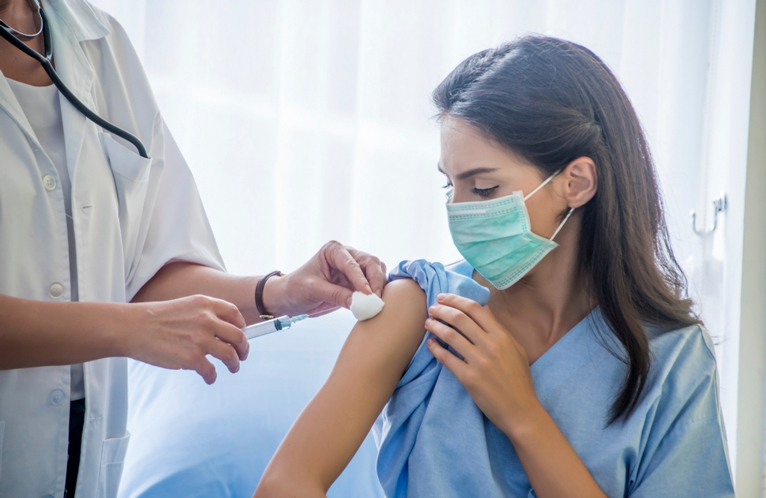Indirect Benefits are a Crucial Consideration When Evaluating COVID-19 Vaccine Candidates, Emory Experts Say

By Catherine Morrow
As the public looks to the horizon for a safe and approved COVID-19 vaccine, researchers at Emory University explain that indirect benefits of a vaccine at the population level are a crucial consideration when evaluating vaccine candidates. The paper was recently published in Nature Medicine.
Led by first author Molly Gallagher, PhD, postdoctoral fellow at Emory University, the paper outlines the reduction of transmission to those unvaccinated and turns to mathematical modeling to understand the potential impact of a vaccine.
“In addition to directly protecting a proportion of vaccinated people, vaccination programs can also indirectly reduce infection risk to all susceptible people, either by reducing the number of infected people in the population or by rendering breakthrough cases less infectious,” authors say. “Vaccinated people who later become infected may have less viral shedding, fewer symptoms, or faster recovery time, all of which could reduce the risk of transmission to an uninfected individual.”
Authors explain that although population-level effects are difficult to assess before a vaccine has been in use, mathematical models can assist in interpreting their potential impact.
With a mathematical model similar to one that has been used in the case of pandemic influenza, researchers demonstrated that a COVID-19 vaccine that modestly reduces the risk of clinical disease, but greatly decreases infectiousness, can be more beneficial at the population level than a vaccine that prevents most symptomatic COVID-19 infections, but does little to reduce onward transmission.
Senior author of the paper is Katia Koelle, PhD, associate professor of biology at Emory University. Coauthors on the paper include Andrew Sieben, Kristin Nelson, PhD, Alicia Kraay, PhD, Walter Orenstein, MD and Ben Lopman, PhD, all from Emory University, and Andreas Handel, PhD, from the University of Georgia.


